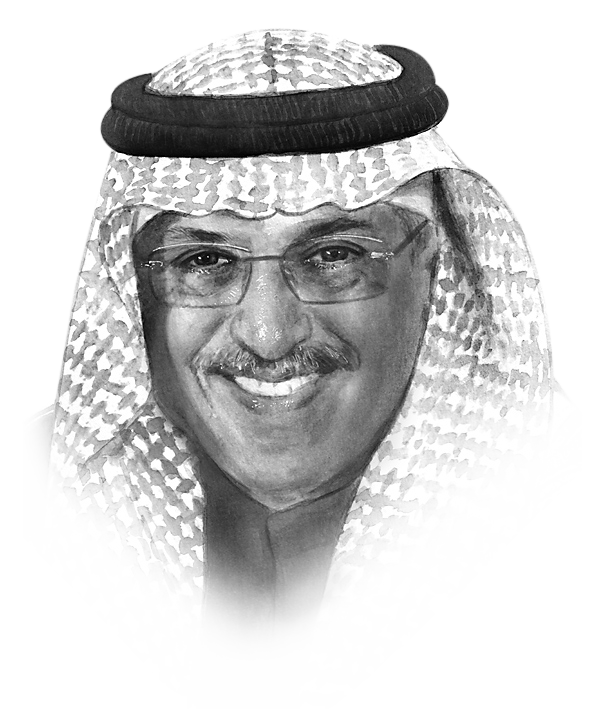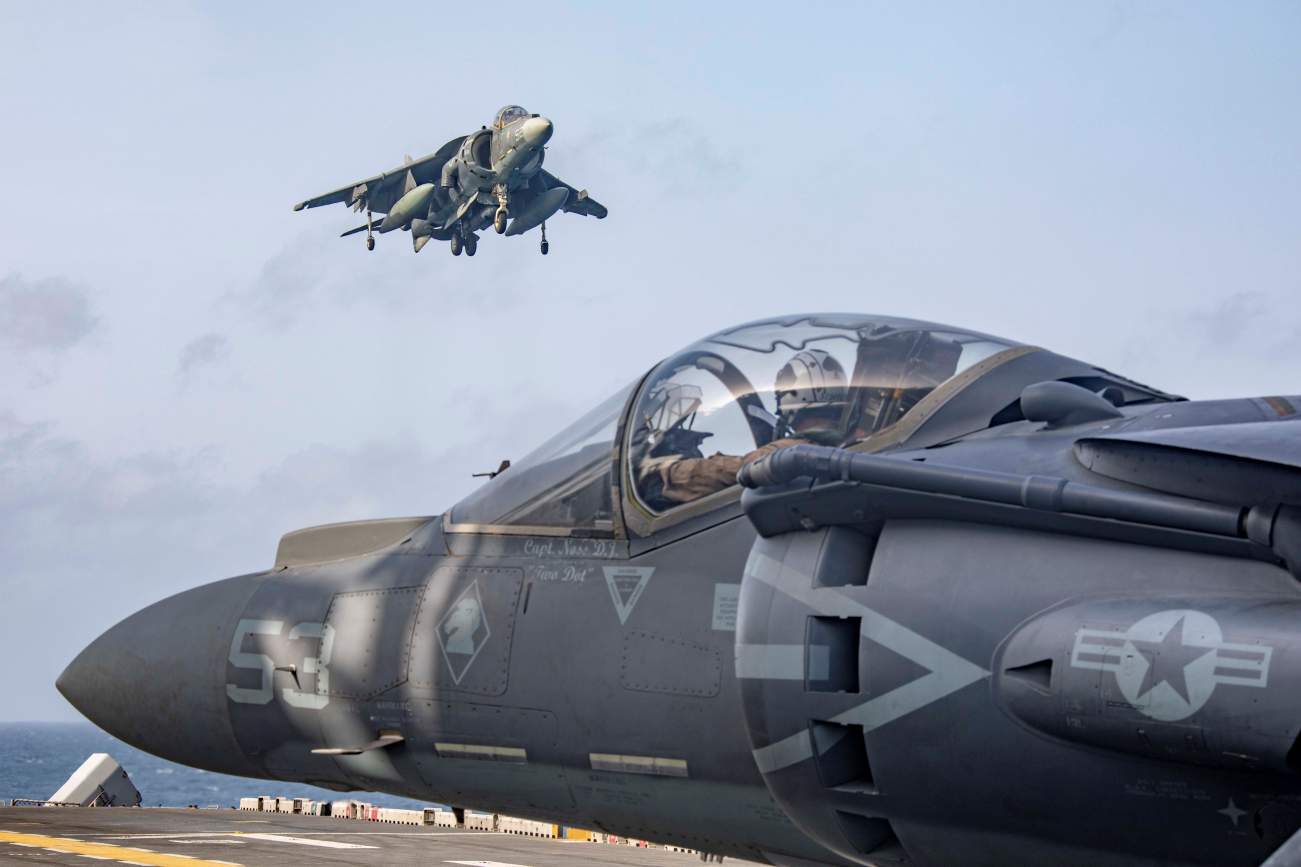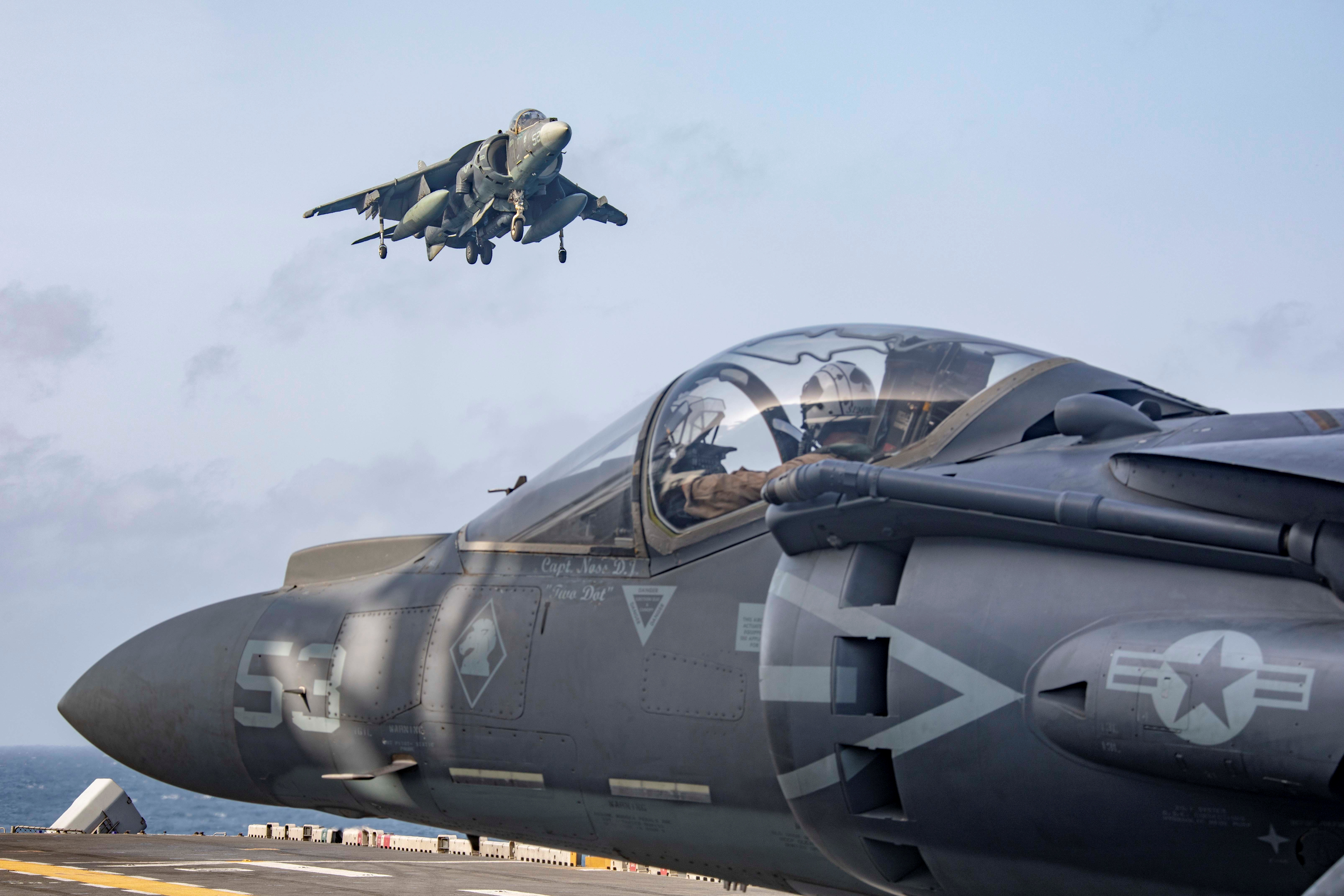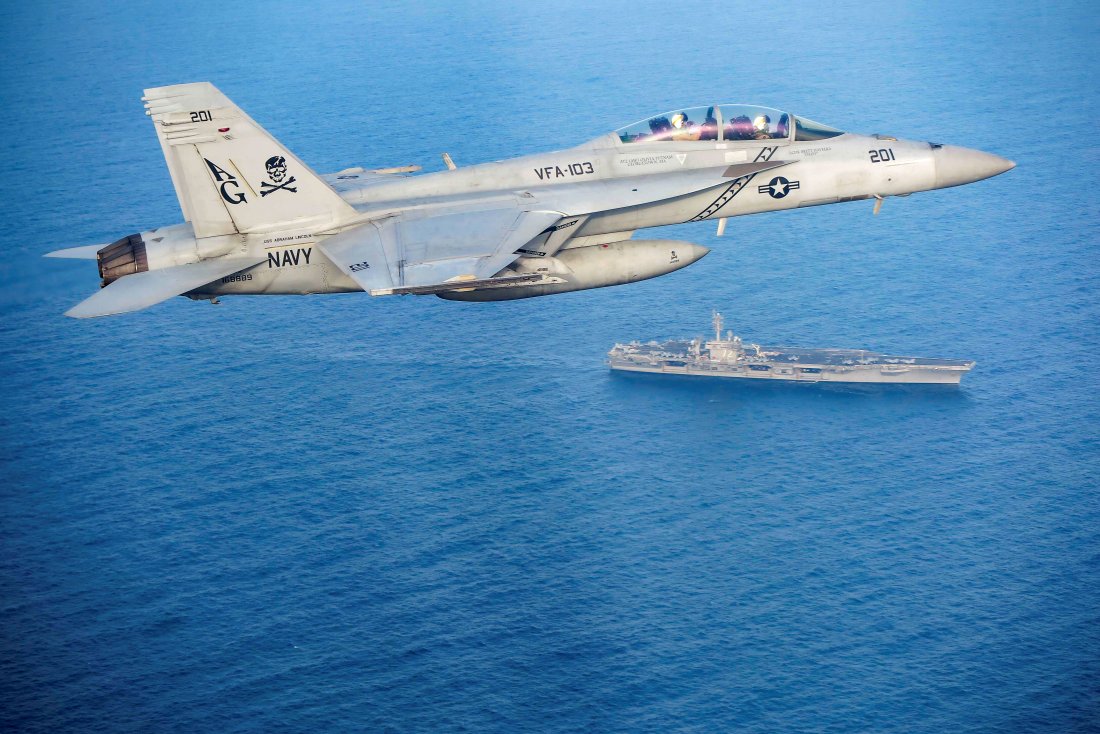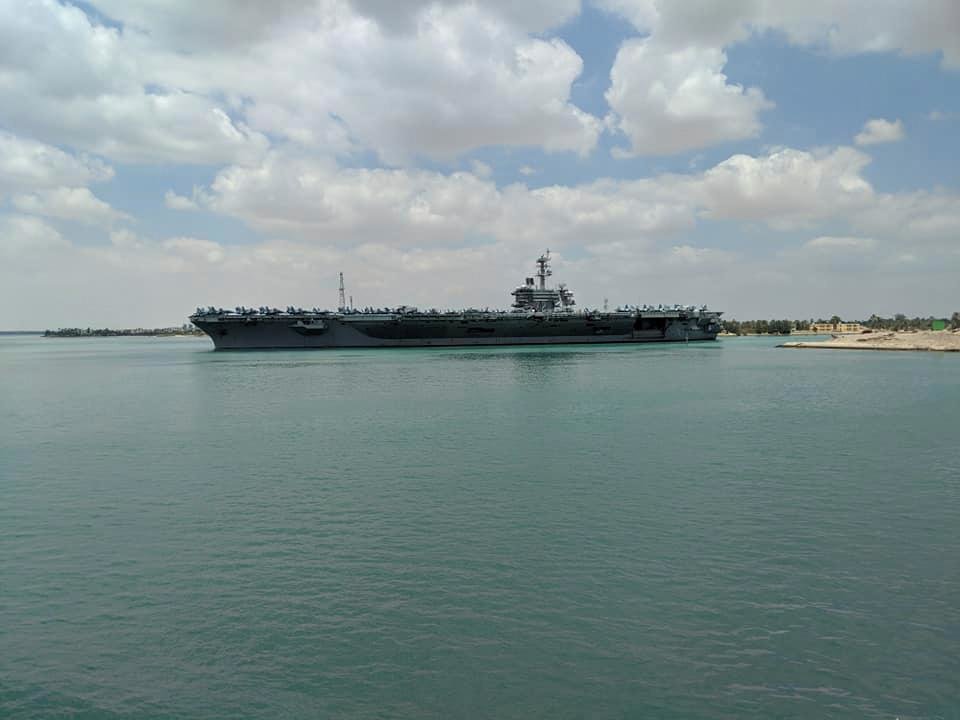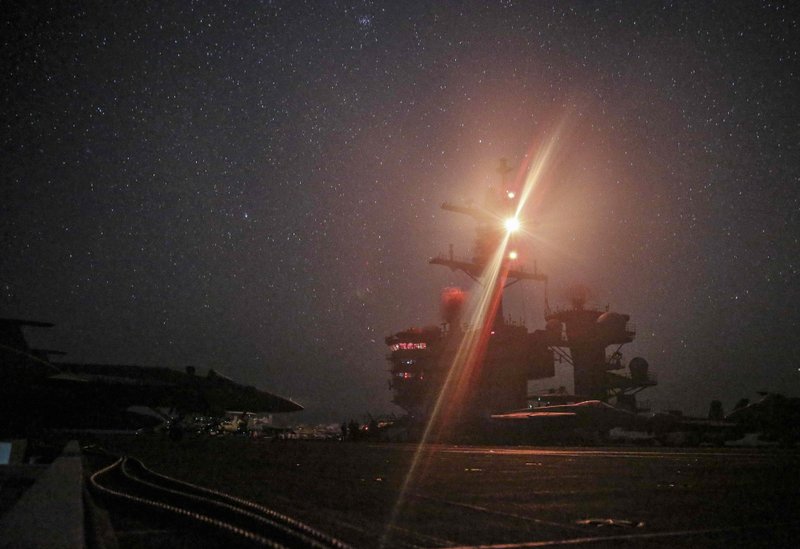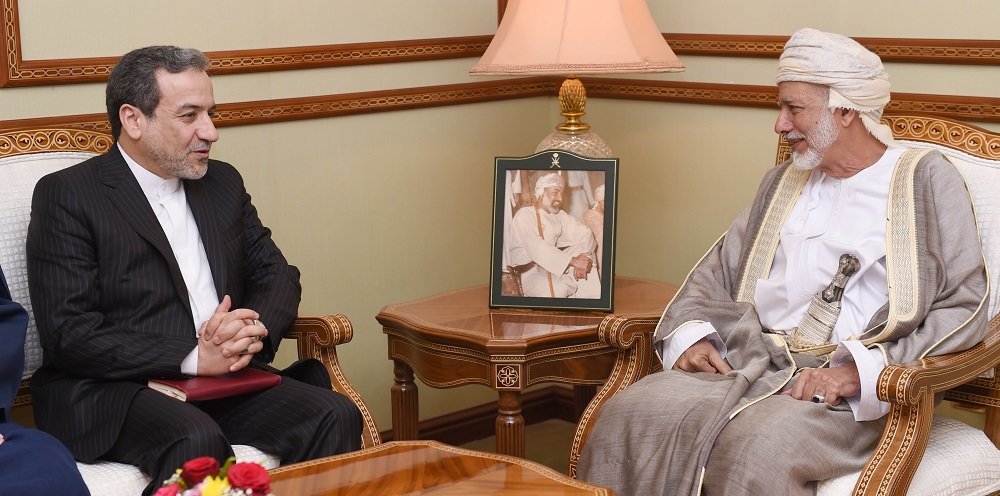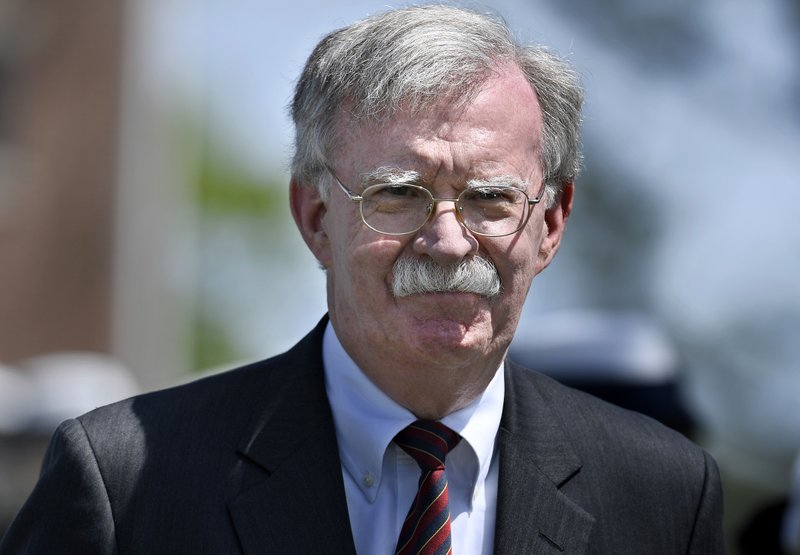Zarif Calls For Improved Ties With Gulf Neighbors Amid U.S. Tensions
May 26, 2019
Iranian Foreign Minister Mohammad Javad Zarif has reiterated that his country wanted to build balanced relations with its Arab neighbors in the Persian Gulf.
Zarif made the comments on May 26 at a joint press conference with Iraqi Foreign Minister Muhammad Ali Alhakim in Baghdad, amid heightened tensions between Tehran and Washington.
Alhakim said that Baghdad wants to mediate between Iran and the United States while stressing that Iraq stands against "unilateral actions" taken by Washington.
Iraq maintains close ties with both Iran and the United States. Mainly Shi'ite Iran has bitter relations with U.S. ally Saudi Arabia and other Sunni-ruled Arab states in the Gulf.
Relations between Tehran and Washington have plummeted since the United States a year ago pulled out of a 2015 nuclear accord between world powers and Iran that curbed the country's nuclear program in exchange for relief from crippling economic sanctions.
Since then, Washington has reimposed sanctions, stepped up its rhetoric, and beefed up its military presence in the Middle East, prompting growing concerns of a possible military conflict with Iran.
In Baghdad, Zarif said that his country will be able to "always strongly and resolutely counter any kind of efforts to launch a war against Iran, whether it is a military war or an economic war on Iran's people."
He said that Iran "wants to have the best possible relations with all [its] neighbors in the Persian Gulf region," adding that he had proposed signing a nonaggression pact with them.
The Iranian foreign minister also urged European backers of the nuclear deal -- Britain, France, and Germany -- to do more to salvage the agreement. The other signatories are Russia and China.
Alhakim said that Iraqi officials were "trying to help and to be mediators" between Tehran and Washington.
But the Iraqi foreign minister insisted that Baghdad opposes "the unilateral measures taken by the United States. We do not like the patronizing and the coercion imposed on our neighbor -- Iran. We are standing side by side with the position of [our] neighbor -- Iran."
Iraqi Prime Minister Adil Abdul-Mahdi discussed the "dangers of a war" during a meeting with Zarif late on May 25, according to his office.
While Zarif was in Baghdad, his deputy, Abbas Araqchi, was in Oman and discussed "regional developments" with Yusuf bin Alawi bin Abdullah, the Gulf sultanate's minister responsible for foreign affairs, according to the state-run Oman News Agency.
Following a recent visit to Tehran, bin Alawi said that Oman is trying "with other parties" to calm tensions between the United States and Iran.
The visits come as U.S. President Donald Trump on May 24 announced the deployment of 1,500 additional military personnel to the Middle East, saying that they would play a "mostly protective" role.
U.S. Secretary of State Mike Pompeo later said that the administration planned to sell $8.1 billion in weapons to Saudi Arabia, the United Arab Emirates, and Jordan to "deter Iranian aggression."
Earlier this month, the United States sent an aircraft carrier and B-52 bombers to the Middle East, citing "imminent threats" from Iran, prompting growing concerns of a possible military conflict.
Tehran denied the allegations and announced it was suspending several commitments under the nuclear deal.
Late on May 25, Iranian President Hassan Rohani floated the idea of holding a public referendum over Iran's nuclear program, local media reported.
Rohani was quoted as saying that he had previously suggested a referendum on the matter to Supreme Leader Ayatollah Ali Khamenei in 2004, when he was a top nuclear negotiator.
With reporting by AP, Reuters, and AFP

 www.rferl.org
www.rferl.org
May 26, 2019
Iranian Foreign Minister Mohammad Javad Zarif has reiterated that his country wanted to build balanced relations with its Arab neighbors in the Persian Gulf.
Zarif made the comments on May 26 at a joint press conference with Iraqi Foreign Minister Muhammad Ali Alhakim in Baghdad, amid heightened tensions between Tehran and Washington.
Alhakim said that Baghdad wants to mediate between Iran and the United States while stressing that Iraq stands against "unilateral actions" taken by Washington.
Iraq maintains close ties with both Iran and the United States. Mainly Shi'ite Iran has bitter relations with U.S. ally Saudi Arabia and other Sunni-ruled Arab states in the Gulf.
Relations between Tehran and Washington have plummeted since the United States a year ago pulled out of a 2015 nuclear accord between world powers and Iran that curbed the country's nuclear program in exchange for relief from crippling economic sanctions.
Since then, Washington has reimposed sanctions, stepped up its rhetoric, and beefed up its military presence in the Middle East, prompting growing concerns of a possible military conflict with Iran.
In Baghdad, Zarif said that his country will be able to "always strongly and resolutely counter any kind of efforts to launch a war against Iran, whether it is a military war or an economic war on Iran's people."
He said that Iran "wants to have the best possible relations with all [its] neighbors in the Persian Gulf region," adding that he had proposed signing a nonaggression pact with them.
The Iranian foreign minister also urged European backers of the nuclear deal -- Britain, France, and Germany -- to do more to salvage the agreement. The other signatories are Russia and China.
Alhakim said that Iraqi officials were "trying to help and to be mediators" between Tehran and Washington.
But the Iraqi foreign minister insisted that Baghdad opposes "the unilateral measures taken by the United States. We do not like the patronizing and the coercion imposed on our neighbor -- Iran. We are standing side by side with the position of [our] neighbor -- Iran."
Iraqi Prime Minister Adil Abdul-Mahdi discussed the "dangers of a war" during a meeting with Zarif late on May 25, according to his office.
While Zarif was in Baghdad, his deputy, Abbas Araqchi, was in Oman and discussed "regional developments" with Yusuf bin Alawi bin Abdullah, the Gulf sultanate's minister responsible for foreign affairs, according to the state-run Oman News Agency.
Following a recent visit to Tehran, bin Alawi said that Oman is trying "with other parties" to calm tensions between the United States and Iran.
The visits come as U.S. President Donald Trump on May 24 announced the deployment of 1,500 additional military personnel to the Middle East, saying that they would play a "mostly protective" role.
U.S. Secretary of State Mike Pompeo later said that the administration planned to sell $8.1 billion in weapons to Saudi Arabia, the United Arab Emirates, and Jordan to "deter Iranian aggression."
Earlier this month, the United States sent an aircraft carrier and B-52 bombers to the Middle East, citing "imminent threats" from Iran, prompting growing concerns of a possible military conflict.
Tehran denied the allegations and announced it was suspending several commitments under the nuclear deal.
Late on May 25, Iranian President Hassan Rohani floated the idea of holding a public referendum over Iran's nuclear program, local media reported.
Rohani was quoted as saying that he had previously suggested a referendum on the matter to Supreme Leader Ayatollah Ali Khamenei in 2004, when he was a top nuclear negotiator.
With reporting by AP, Reuters, and AFP

Zarif Calls For Improved Ties With Gulf Neighbors Amid U.S. Tensions
Iranian Foreign Minister Mohammad Javad Zarif has reiterated that his country wanted to build balanced relations with its Arab neighbors in the Persian Gulf.

